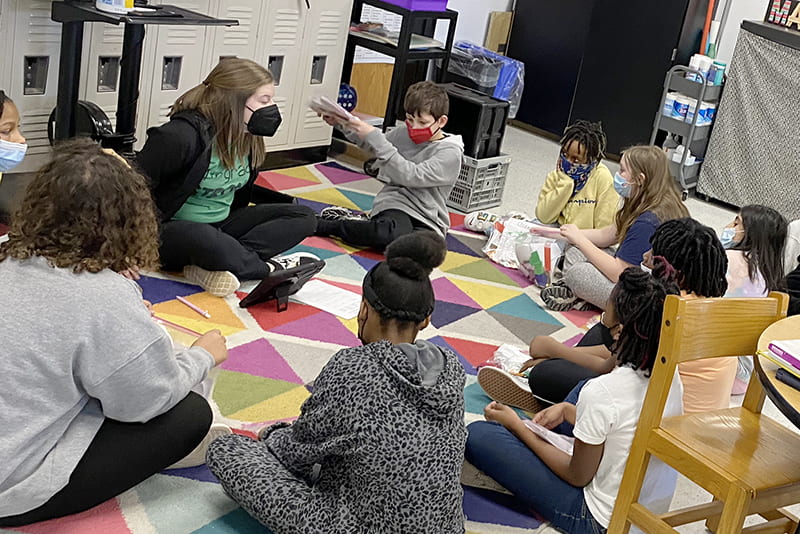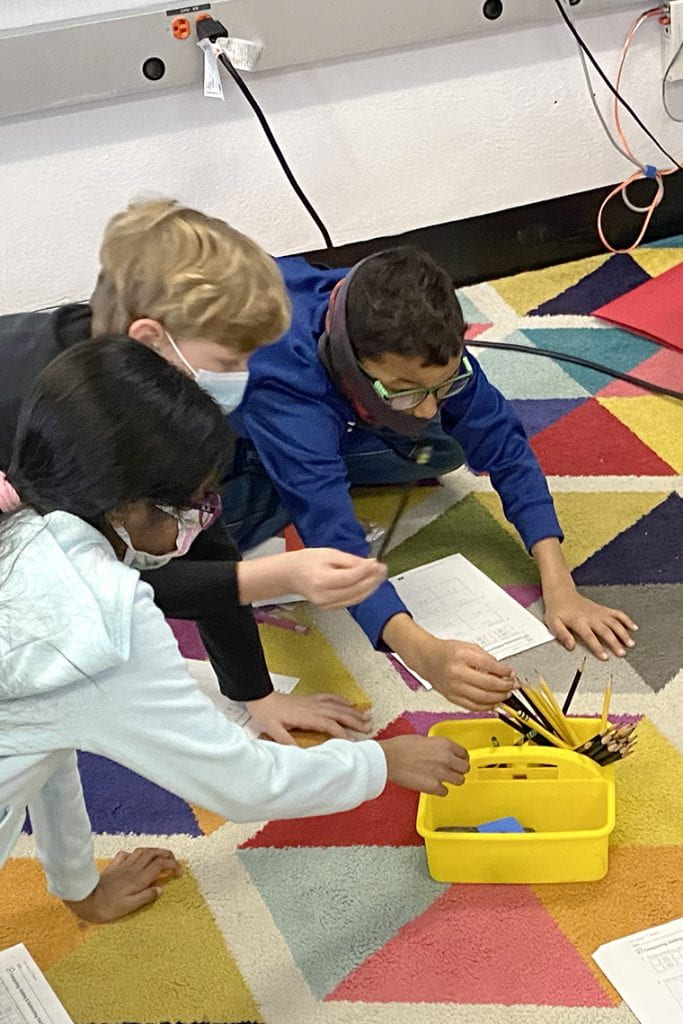For some reason, the 40 fourth graders that Kristen Buescher co-teaches this year at Parkwood Elementary School are finding cows hilarious.
“Their collective obsession with cows has bonded the group, so we’re going with it,” Buescher muses. “We really try to build opportunities that bond students to one another and to us. Laughing while you’re learning takes the pressure off, and infuses some fun, especially for math.”

Lightening the mood for math learning is just one way Buescher works to build confidence in her students through personalized learning. She’s honing her craft with 1:1 math coaching support from ISP Instructional Specialist Wendy LaRose, as part of a pilot involving 15+ teachers from the Pattonville and University City School Districts.
The Math Coaching pilot provides ISP an opportunity to connect more deeply with teachers beyond the traditional professional development model. The feedback thus far has been a thumbs-up from teachers, who demonstrate a will to power through despite COVID-19.
“One teacher told us that the coaching opportunity helped her keep pushing the kids, even though she felt defeated by the pandemic. It’s wonderful when teachers are really surprised at what their students can do. For teachers to see kids coming up with more than one way to solve a problem when they are given a high-level task is very fun.”
Wendy LaRose, ISP Instructional Specialist
The power of a good question
Mastering the art of questioning is key to getting students to engage with math in deep and meaningful ways, says LaRose.
“A good, high-level question that challenges cognitive demand has multiple entry points, multiple representations (visuals, graphs, charts), different procedures, and the teacher’s ability to maintain high-level thinking. It’s a question of developing a teacher’s intentionality around asking good questions at the right time for the right reason.”
The goal of the project is to equip teachers to pose math questions that invite every student to engage.
“Good math lessons equal less talk for teachers, more talk for students,” adds LaRose.

Getting out of the way when teaching math can be a challenge, especially for elementary school teachers, who are charged with teaching many subjects.
“With elementary teaching, the scope of the content is so wide that it’s really difficult to be an expert in every subject,” confirms Buescher, who admits that her own history as a math learner has been a barrier.
“I’m such a step-by-step learner, but most of my students don’t think that way,” reflects Buescher, who recalls learning math through memorization. “I don’t remember learning about the process or the ‘why’ of getting to an answer, so working with a coach has helped me honor the many different ways that students might access a problem. It also means I have to be flexible and consider that critical ‘why’ now.”
By teaming up with an ISP teaching coach, Buescher is benefiting from personalized learning herself, convincing her all the more that being heard as a learner makes all the difference.
“The ISP coaches didn’t come to the project with a script,” she says. “Instead, our coaches focused on the needs we articulated.”
Job one for Buecsher at the beginning of the pilot was becoming more adept at asking questions.
“I’ve really been working on this with my coach” she says. “I feel a lot more comfortable because I’m developing a set of core questions to have in my pocket that are designed to keep students engaged. These skills are applicable for other subjects as well.”
Participating in the coaching does require extra effort, but Buescher, who has eleven years of teaching experience, says the payoff is worth it.
“When a student verbalizes understanding, or you see a face light up, that’s wonderful. But what’s even better is when that same student comes in the next day more confident. That’s priceless.”
Media Contact: Anne Heinrich